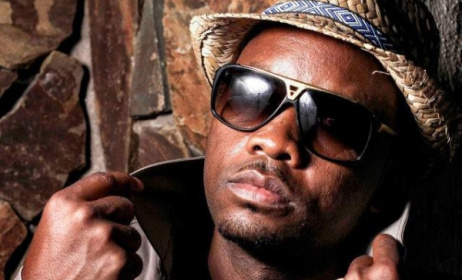Brothers Of Peace - King of Kwaito Uyagawula
Artist: Brothers Of Peace
Album: King of Kwaito Uyagawula
Label and year: Teal, 1996
 Brothers Of Peace - King of Kwaito Uyagawula
Brothers Of Peace - King of Kwaito Uyagawula
BOP’s second album came amidst the public's growing dissatisfaction with a genre seemingly hell-bent on maintaining its bad-boy image. Kwaito was still negotiating its path in a newly-liberated South Africa; its artists felt at liberty to purvey party-particular messages to a youth demographic which then turned the music into a soundtrack for their rebellious exploits. Adults berated its lack of imagination. To them, kwaito was ill-mannered, brash and bratty.
King of Kwaito Uyagawula was essentially an extended rant against, among other things, children from privileged 'Model C' schools, lawlessness in society and our overzealous love of everything American. Oscar Mdlongwa and Bruce Sibitlo recruited the gravelly-voiced rapper Dr Mageu in an experiment that fortified their image and that of their label, Kalawa Jazmees. It was also the era of 'beefs' in America; Tupac and Biggie Smalls' much-publicized face-off had clearly sifted through to the kwaito playground. ‘O Kae Molao’ is a judgemental gaze at Americanisms; ‘Egoli – Egauteng’ is an hilariously accurate depiction of the struggles faced by first-time arrivals to Johannesburg, the 'City of Gold'; while ‘Manyonyoba’ details the shenanigans of men who interfere in other couples’ love affairs.
Dr Mageu’s importance to album’s success cannot be underplayed. With his rumbling laughter, his abrasive vocal style reminiscent of hailstones on a thin zinc roof, his baggy overalls and his obnoxious on-stage antics, he epitomized the ideals that rebellious youth across South Africa held in high esteem – loud, bold, uninhibited and unapologetic.
Kwaito did have a message, but it was a message that detractors of the genre did not want to hear. Through themes of partying, trying to find a way out of the ghetto and the unrequited desire for success, kwaito best portrayed urban South Africa throughout the 90s. BOP was arguably at the centre of that conversation. With its driving force Dr Mageu now deceased, the album remains a hallmark of his lyrical brilliance and a testament to what happens when a movement decides to show the collective middle finger to any and all authority.






















Commentaires
s'identifier or register to post comments